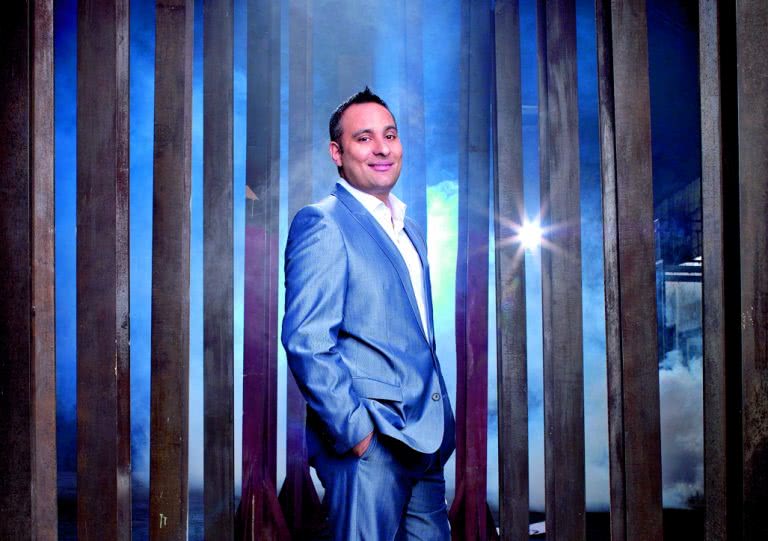Russell Peters is an anomaly in the comedy world. While it might surprise many purists within the practice, his level of global appeal in the contemporary scene is impenetrable.
He currently holds the record in Dubai for the fastest-selling concert in the history of the Emirate, his attendance records are yet to be eclipsed in South Africa, Thailand, Singapore, Indonesia, Malaysia and his home country of Canada, and in 2012 he became the first comedian to perform at Barclays Center in Brooklyn to a crowd of over 10,000, making it the largest comedy show ever in the history of the New York City borough.
While Peters is no stranger to selling out the biggest venues across the globe several times over, he confesses that returning to the dark and dingy clubs where he first began making his mark is as imperative today as it was when he began over 26 years ago.
“To me, arena shows and stadium shows, they’re like title fights,” he says. “Comedy clubs are where you go to train. You’ve got to do the groundwork, you’ve got to build yourself up. You’ve got to spar and fight with comics that are younger and hungrier than you. Firstly you have to earn your place, but then you need to maintain your position. It’s really like boxing; you always need to go back to the beginning. If you try and skip a step in this game then you’re going to end up on your ass.
“You’ve got to give it to those guys, those ones who are out there performing every night and working on their stuff. There’s this thing – you can go around and have people paying to see you and being enamoured by your performances, but it creates this false sense of security. Once you put on those gloves it’s an equal playground. That’s when you find out just how funny your jokes really are.”
While the vicious proclamation that illegal downloading is killing the music industry rings incessantly, many seem to overlook the problems that the YouTube age is creating for modern-day comedians. In his 2006 DVD, Outsourced, Peters begins by greeting the audience with, “Look at you, you filthy downloaders!” Fiscal implications aside, the recording and distribution of a show, a joke or a punchline can affect a comedian in a live setting far greater than it can a musician.
“That’s why I have my security guys at my shows,” Peters explains. “They’re not there to protect me, they’re there to protect my artistic product. They make sure that nobody in the audience has a camera out and are trying to record it.
“We live in a time where people just find it really difficult to simply sit down and watch something. People feel the need to record things, and in doing that, you take yourself out of the moment. To make the most out of any show you need to stay in the moment and to stay in that space. It’s not that difficult.”
This month sees Peters return to Australian shores for the first time since his sell-out tour in 2013. “The show is really a snapshot of my life right now,” he says. “I think this show really allows me to get away from that whole usual ethnic style of comedy. There’s a lot of stuff that’s basically about me being a 44-year-old man still struggling to try and fit into this world. I mean, I’m still immature but I’m also a father. We live in a technological world but there’s still so much about it that puzzles me, which to be honest is embarrassing for an Indian guy,” he laughs.
“As I perform my show every night I’m still polishing it up. The show is always changing. You may expand on a bit, you might economise something. You might find that something works better if you say it this way or that way. It’s forever a changing process. There’s always challenges and ways to keep myself entertained while I’m up there performing.”
Russell Peters is performing at the Allphones Arenaon Saturday 28 March.

































